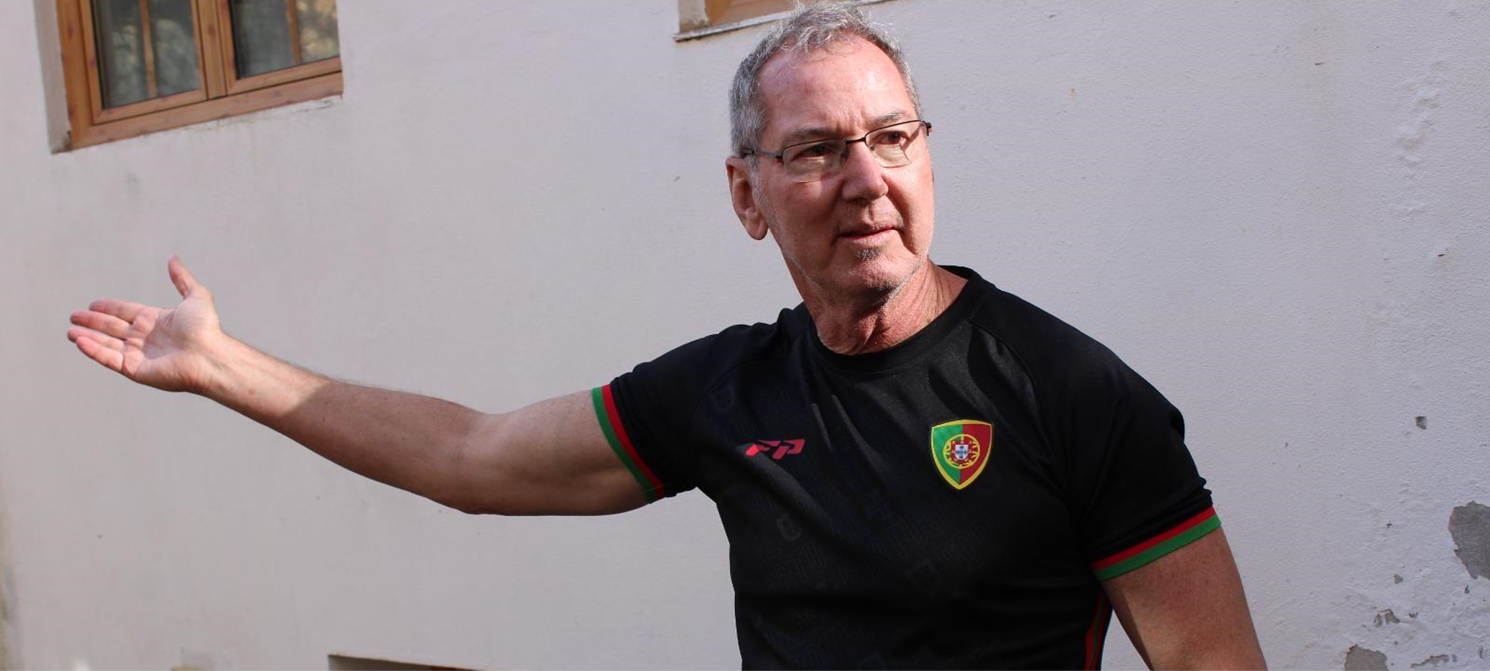In order to resurrect Tarrastal many houses have been recently transformed for tourism especially by foreigners. “In contrast to Aigra Nova, who got investments from the government, Tarrastal has been entirely revived due to the locals”, said Lucas. An example of this effort is Chalé do Dragão. Chalé do Dragão is a guesthouse operated by Alan McNaught, a south african immigrant who moved to Portugal with the goal to pursue peace and quiet. But why Tarrastal in particular? “Tarrastal is a very beautiful village and I love Xisto stone. I love it here, I have my dogs, quiet and peace”, said Alan. After a lot of research online and driving around Góis, he thought “This is the perfect one”. He also noted that only after he started his business did more foreigners start to invest in this village. Nowadays the majority of the old houses have been renovated operating as guest houses themselves. The village has become so popular that Chalé do Dragão is booked 50% of the year. Both in summer during high season and winter when people enjoy hanging around the fireplace with their families. Unfortunately to this day no all-year round residents can be found, even the guest house owners do not live here. But how does one sustain his business when not present?
This is one of the problems Alan faces. Due to personal issues he can not be present all year round and therefore has problems with maintaining the place, forcing him to hire people from nearby villages to take care of it and to only allow for a maximum of 4 days booking. Another problem is that although the surrounding pine forests are beautiful, they pose the risk of fire. He stated however “I basically faced no problems with the guest house as I was lucky to issue my license before the Portuguese government made it unobtainable”.
His goal is not only to benefit from the business himself but also attract the youth back to the rural areas of Portugal. As he stated “The villages of Portugal are not sustainable and thus push young people to the cities. The majority of the houses in the vicinity are owned by people with roots to the location (i.e the Bandeiras Family who date all the way back to 100 years and own 8 houses in the village) and are used as holiday houses. Even the state regulations are unsustainable, being very restrictive and thus not allowing for people to move to the countryside as they are not allowed to build on agricultural land”.
To further promote this aim, the local committee (consisting of the “indigenous” families) organizes a community picnic every August in Tarrastal where hundreds of people gather from the surrounding villages but not only. Him and the municipality have also made efforts to attract more people. An example of this is the Restoration Project of Tarrastal which has been operating since 1999 where the landowners along with members of the municipality take care of the village (i.e they take care of the overgrowing weed regularly and they have installed new LED lights along the villages’ paths). He is also happy that even if there are no residents there is always someone here taking care of the village. “The Portuguese respect”, he said.
For the sustainability part, he stated that he has not yet implemented a lot of sustainable solutions. He is however planning to install solar panels. At the moment the most sustainable part of the village is the water which is not issued by the municipality but comes straight from the mountain.
But why Chalé do Dragão? Alan stated that he always loved dragons and when he found out that the already renovated building featured a dragon window, he tried his very best to make it part of the contract.
It is pretty obvious that Chalé do Dragão is actively promoting Tarrastal village and facilitates the preservation of the broader region, but its sustainability in the future is the responsibility of all inhabitants of Góis.



